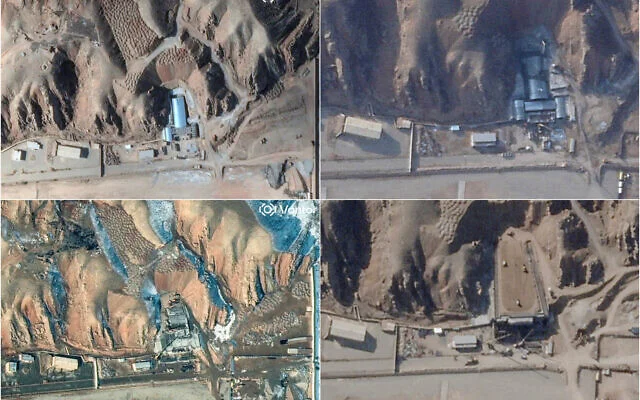 Prime Minister Ehud Olmert’s trip to Japan was planned well in advance; he has accepted invitations that he received last year both from current Japanese Prime Minister Yasuo Fukuda, as well as from the latter’s predecessor, Shinzo Abe. No Israeli Prime Minister has visited Japan since then Prime Minister Benjamin Netanyahu’s visit in 1997, despite the deepening of bilateral relations and Japan’s great importance as an economic superpower with global influence.
Prime Minister Ehud Olmert’s trip to Japan was planned well in advance; he has accepted invitations that he received last year both from current Japanese Prime Minister Yasuo Fukuda, as well as from the latter’s predecessor, Shinzo Abe. No Israeli Prime Minister has visited Japan since then Prime Minister Benjamin Netanyahu’s visit in 1997, despite the deepening of bilateral relations and Japan’s great importance as an economic superpower with global influence.
Prime Minister Olmert’s current visit has two main aspects – diplomatic and economic.
In the diplomatic sphere, Japan has shown great interest in the diplomatic process between Israel and the Palestinian Authority and is even prepared to invest considerable funds in strengthening the PA’s economic infrastructure, out of recognition that economic stability would ensure both political stability and the ability to advance the process. In this context, Japan is focusing most of its efforts on a large-scale economic project – “Corridor for Peace and Prosperity”. This initiative concerns the building of joint Israeli, Jordanian and PA factories and projects in the Jericho area, which will ensure thousands of jobs and a source of livelihood, mainly for the Palestinian people. Prime Minister Olmert fully recognizes the importance of economics as a lever for the diplomatic process, and also supports the project that Japan is trying to promote. During the visit, both nations will make a genuine effort to advance the project. Similarly, the Prime Minister will update Japanese leaders on the progress, developments and difficulties in the diplomatic process, especially the problem of terrorism, based both in the Gaza Strip and in Judea and Samaria.
Another diplomatic issue that Prime Minister Olmert intends to raise in his talks is Iran’s aspiration to equip itself with nuclear weapons. Following the publication of the latest International Atomic Energy Agency report, which raised additional question marks about Iran’s actions and policies and provided very few unequivocal facts in this context. The Prime Minister intends to discuss with his hosts the need for the international community to act forthwith in order to prevent Iran from attaining nuclear weapons. Israel believes that the way to do this at the present is via economic and diplomatic sanctions. To this end, an additional meeting of the UN Security Council is required in order to discuss a third round of sanctions against a country that does not hesitate to continuously threaten the destruction of Israel. These threats are being made without any provocation by Israel and in the absence of any bilateral conflict.
These threats are – to Israel’s regret – fed by an irrational hatred. Prime Minister Olmert believes that countries such as Japan, the United States, Germany, France and the United Kingdom have the ability to also take additional measures on their own, regardless of UN Security Council sanctions, in order to restrict trade with Iran. These countries, if they choose to act with determination in this context, could cause the extremist regime in Iran to retreat from its intentions to arm itself with nuclear weapons. Japan has already begun to enact a responsible policy in this regard and has taken upon itself to restrict Japanese companies’ trade with Iran; this effort must be continued.
In addition to the diplomatic issues, Prime Minister Olmert will also focus on the development of economic ties. Prior to the visit, his bureau contacted the Japanese government and inquired regarding those areas in which it was possible to strengthen bilateral cooperation. According to the issues that were suggested, a list was formulated – in cooperation with the Industry, Trade and Labor Ministry’s Foreign Trade Administration and Export and International Cooperation Institute – of approximately 20 leading Israeli industrialists and businesspeople, who would join the Prime Minister during his visit. During his visit, Prime Minister Olmert will hold a joint seminar for the Israeli business people and their Japanese counterparts and will brief them on the economic situation in Israel. The Prime Minister will also meet with Japanese economic leaders and will visit a leading Japanese industrial plant, which also exports to Israel. He hopes to increase Israeli exports to Japan, which are currently approximately one-third of imports. More jobs will thus be created in Israel and unemployment will continue to decline.










5 Responses
It’s nice and safe in Japan, no Kassams, no suicide bombers, no Katyushas. Why doesn’t Olmert just stay there, and let us lead the country ourselves in a Torah way.
dreams are plentiful, however, the underlying factors are important.olmert, whether you agree with him or not, represents the israeli govt. there are many political matters under cover that you and i and others will for many years not know that are being discussed with the japanese.be mispalel for your wishful thinkings and the success of the israeli gov’t dealing with the japenese gov’t.
Perhaps prime minister Omlette – whoops! I mean Olmert – just wants to hire some mercenary kamikaze pilots to help fight the arabs. After all, they’re the original suicide bombers. Perhaps a taste of they’re own medicine is just what the palestinians need.
No relevance to Omelette i mean Olmert.
The original Kamikazes are quite different than current suicide bombers.
Firstly kamikazes never targeted civilians. Second they never approached behind enemy lines with stealth.
Last, today’s suiciders are
a) forced under blackmail to family vs. payoffs if they follow through
b) as in Iraq their hands are tied to a steering wheel and they drive off to a checkpoint.
c) Not aware of their explosives
d) In the states we have anti-suicide programs there they have pro suicide culture.
You never see the leaders suiciding themselves !! They’re tooo important.
Baale Boose, of course you’re right. I was just trying to be funny. (Sorry if it didn’t work!)